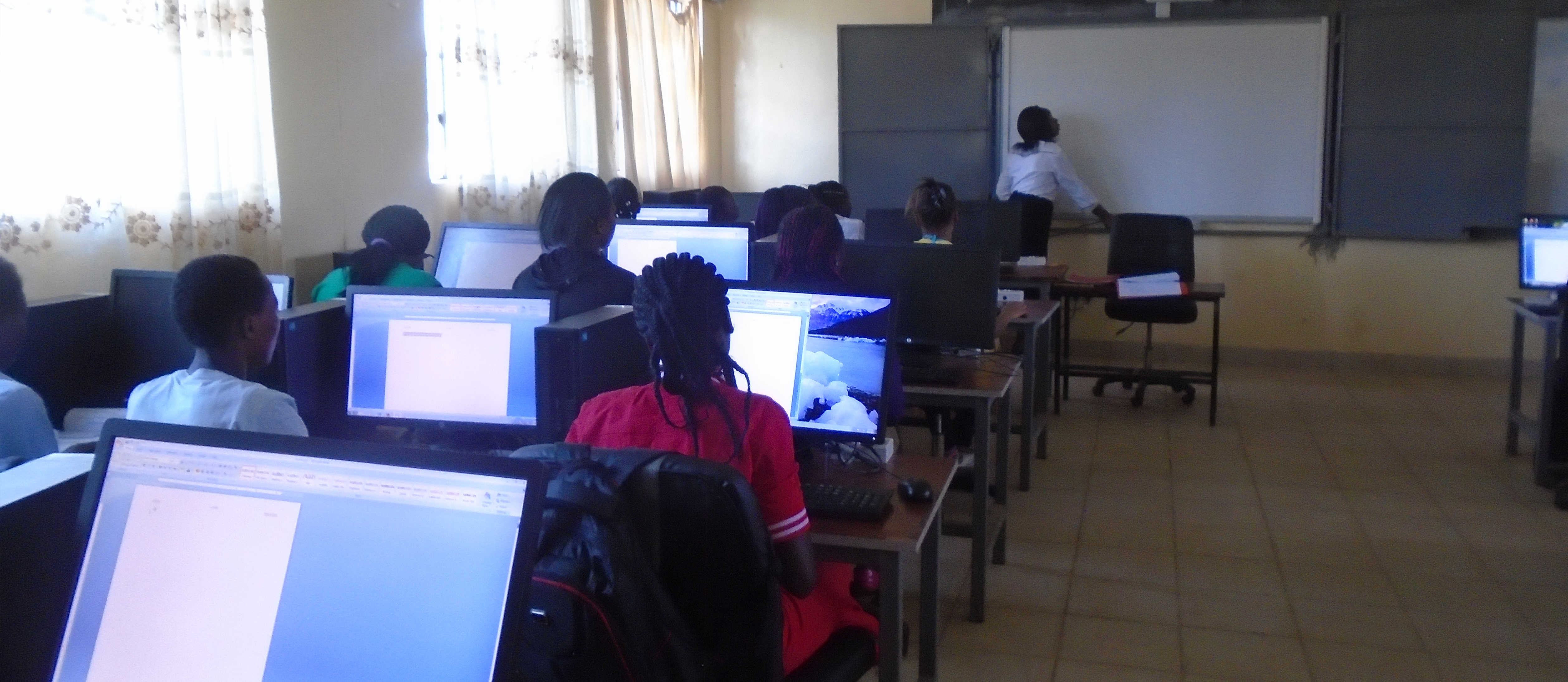HISTORY OF BUSINESS DEPARTMENT
Established in 1986, the department offered mainly basic KASNEB and certificate courses in secretarial studies following a donation by the Swedish government of typewriters and other training equipment. In 1991, the Kenya Institute of education developed syllabi for diploma programmes in Technical Training Institutions.
Presently, the department is offering market driven programmes ranging from artisan, certificate to Diploma. We cover a broad range of subjects such as economics, accounting, information technology, communication and entrepreneurial training among others. In doing so, we Endeavour to equip trainees with knowledge, skills and competences needed in the modern business office and in managing business enterprises.
The department is further committed to producing graduates who are agents and managers of change and who are alive to the potentials and challenges of a globalized economic environment which enables them to effectively participate and be more relevant to the needs of the 21st century and beyond.
In the last few years, business studies department has made a shift to the modular based TVET curriculum which is more flexible and competency based. It is also more aligned to the requirements of the Kenyan constitution and vision 2030.
To enable us serve our clients better, the department is managed in five sections; Accountancy, Management, Supplies management, Secretarial management and projects and common subjects. Currently we are offering a total of fifteen (15) Courses and have a student population of five hundred and sixty nine (569). The number of trainees in session as today stands skewed in favour of the female trainees at 170 for Male trainees and 379 Female trainees which in percentage are 30% and 70% respectively.
We have a teaching staff of 27 lecturers 17 of who are employed by the government and 10 by the Polytechnic Council.
Lessons take place in a spacious and ambient Business Centre next to our modern library where students can access further learning.
The courses offered include;
- DIPLOMA COURSES
Diploma in Business Management (Modular)
Diploma in Sales and Marketing (Modular)
Diploma in Chain Supply Management (Modular)
Diploma in Human Resource Management (Modular)
Diploma in Project Management (Modular)
Diploma in Accountancy (TEP)
Diploma in Banking and finance (TEP)
Diploma in secretarial (Modular)
Diploma in co-operative management (Modular)
- CRAFT CERTIFICATE COURSES
Craft Certificate in Business Management (Module I and II)
Craft Certificate in Sales and Marketing (Module I and II)
Craft Certificate in Chain Supply Management (Module I and II)
Craft Certificate in Project Management (Module I and II)
Craft Certificate in Human Resource (Module I and II)
Craft Certificate in secretarial studies (Module I and II
- KASNEB COURSES
- PROFFESSIONAL COURSE IN SUPPLY CHAIN MANAGEMENT
- PROFFESSIONAL COURSE IN HUMAN RESOURCE MANAGEMENT
- TRADE SPECIALIZATION UNITS & SINGLE SUBJECTS
- Computerized Document Processing
- Shorthand
- Office Procedures
- Principles and Practice of Marketing
- Communication Skills
- Business Calculations I & II
- Secretarial Duties
- Financial Accounting
- Commerce I & II
- Economics
- Commercial Law
- Information Communication Technology
- Business finance
- Office Administration and Management
- Storekeeping I & II
- Statistics
- Cost Accounting
- Fundamentals of Management and Environment
SHORT COURSES
- Business Plans
- Project writing
- Proposal writing
- Customer care and public relations
- Bookkeeping
- Records management
- Office practice
- Business calculations
- Supply services
- Human resource services
- Organization and functions of government
- Communication skills, among others

